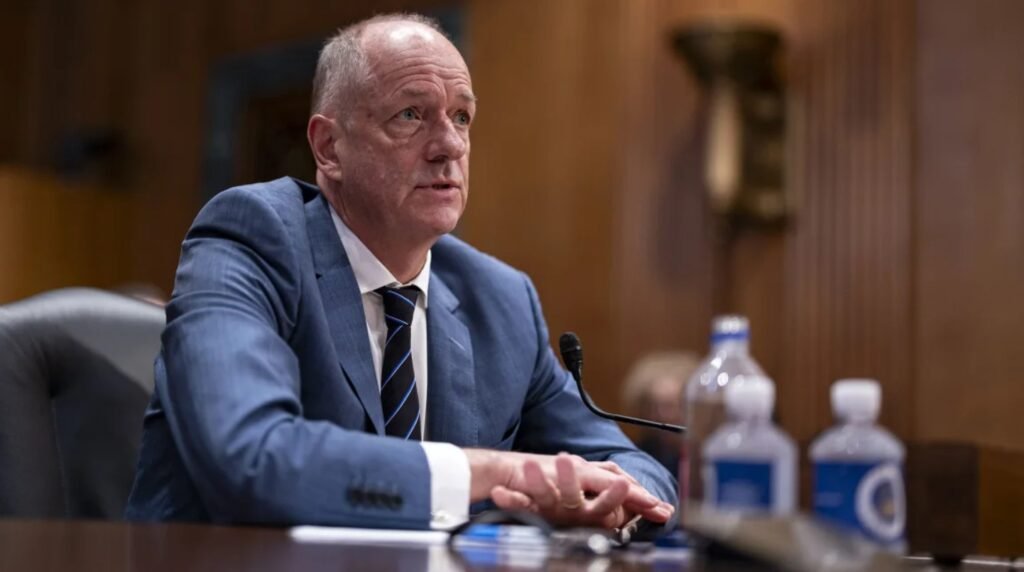In a surprising leadership shakeup, UnitedHealth Group announced that Chief Executive Officer Andrew Witty has stepped down, citing personal reasons. The transition comes as the nation’s largest health insurer grapples with escalating medical costs and mounting operational challenges that prompted the company to withdraw its 2025 financial outlook.
Taking over immediately is Stephen Hemsley, the company’s former long-serving CEO and current board chairman. Hemsley, who previously led UnitedHealth from 2006 to 2017, will now resume the top executive role while continuing to chair the board. Former CEO Andrew Witty will remain involved as a senior adviser to help guide the transition.
A Tumultuous Period for UnitedHealth
The departure of unitedhealth group ceo andrew Witty marks a dramatic moment for the $340 billion healthcare behemoth, which has faced a string of disruptive events since late 2024. One of the most jarring was the December killing of executive Brian Thompson in New York City. Though unrelated to UnitedHealth’s business operations, the violent incident sent shockwaves through the organization and Wall Street alike.
Investors have not taken these events lightly. UnitedHealth’s stock has lost 38% of its value since the incident, including a sharp 16% plunge on Tuesday, pushing shares to levels unseen in nearly five years. Other health insurers, including Humana, Elevance Health, and Cigna, saw notable declines between 4% and 7% amid investor unease.
Leadership Commentary and Forward Strategy

Speaking in a conference call Tuesday morning, Hemsley did not sugarcoat the challenges. “We acknowledge the serious performance setbacks caused by both internal missteps and external disruptions,” he stated. “The majority of these issues are within our control, and I’m confident in our ability to address them head-on with urgency and integrity.”
While unitedhealth group ceo andrew Witty had presided throughout historic financial expansion, his tenure was ultimately defined by growing scrutiny and mounting obstacles in a rapidly evolving healthcare landscape.
A Legacy of Expansion and Innovation
Witty joined UnitedHealth Group in 2018 following nearly a decade as CEO of GlaxoSmithKline, one of the world’s leading pharmaceutical firms. He took the helm at UnitedHealth in February 2021, replacing Dave Wichmann. Under his leadership, the company underwent significant growth. Revenues soared from $257 billion to over $400 billion—a 55% increase that made UnitedHealth one of America’s most powerful corporations.
In parallel, shares of the company surged more than 60% during Witty’s tenure, reflecting investor confidence in his strategic vision. UnitedHealth also expanded its Optum segment, which combines data analytics, direct patient care, and tech-driven services to create a more integrated health system.
Medicare Advantage Pressures
Despite these accomplishments, 2025 has brought mounting pressures. In recent months, UnitedHealth lowered and then fully withdrew its earnings guidance for the year. The decision followed disappointing first-quarter results—its first earnings miss in more than a decade—and rising healthcare costs, especially among new enrollees in its Medicare Advantage plans.
As the largest provider of Medicare Advantage coverage, UnitedHealthcare—UnitedHealth Group’s insurance arm—serves over 8 million Americans, primarily seniors. These privately managed alternatives to traditional Medicare have become a centerpiece of the company’s strategy, but are now drawing increased scrutiny for cost overruns and care delivery challenges.
Witty’s Departure Amid Crisis and Criticism
The resignation of unitedhealth group ceo andrew Witty coincides with an atmosphere of heightened public and political attention. The recent federal indictment of Luigi Mangione, accused in the fatal attack on Brian Thompson, has triggered widespread outrage and renewed criticism of corporate health insurers. The case has amplified discussions around executive safety, healthcare access, and the influence of large insurers in the American health system.
Against this backdrop, Hemsley is tasked with restoring stability, regaining market confidence, and addressing the internal inefficiencies that have surfaced over the past six months.
UnitedHealth’s Complex Role in American Healthcare
Today, more than 50 million Americans are covered under various UnitedHealth insurance plans. The company also owns a leading pharmacy benefit manager, which negotiates drug prices on behalf of insurers and employers, and delivers support to patients through its fast-growing Optum business. These vertical integrations have positioned UnitedHealth as a dominant force across multiple layers of the healthcare industry.
Yet critics argue that such consolidation contributes to rising healthcare costs and limited consumer choices. Under the leadership of UnitedHealth Group ceo Andrew Witty, the company frequently defended its scale as a means to improve efficiency and coordination of care, an argument that may face fresh skepticism given recent events.
The Road Ahead
Both legacy and reinvention will shape the next chapter for UnitedHealth Group. While unitedhealth group ceo andrew Witty oversaw a period of aggressive growth, the baton now passes to a seasoned executive who must navigate a volatile economic and regulatory environment. Hemsley’s return suggests a shift toward stabilizing operations and rebuilding trust within the company, among investors, and across the broader healthcare ecosystem.
As the health industry continues to evolve post-pandemic, all eyes will be on how UnitedHealth responds to its current crisis and whether it can maintain its leadership in delivering care and coverage to millions of Americans.
